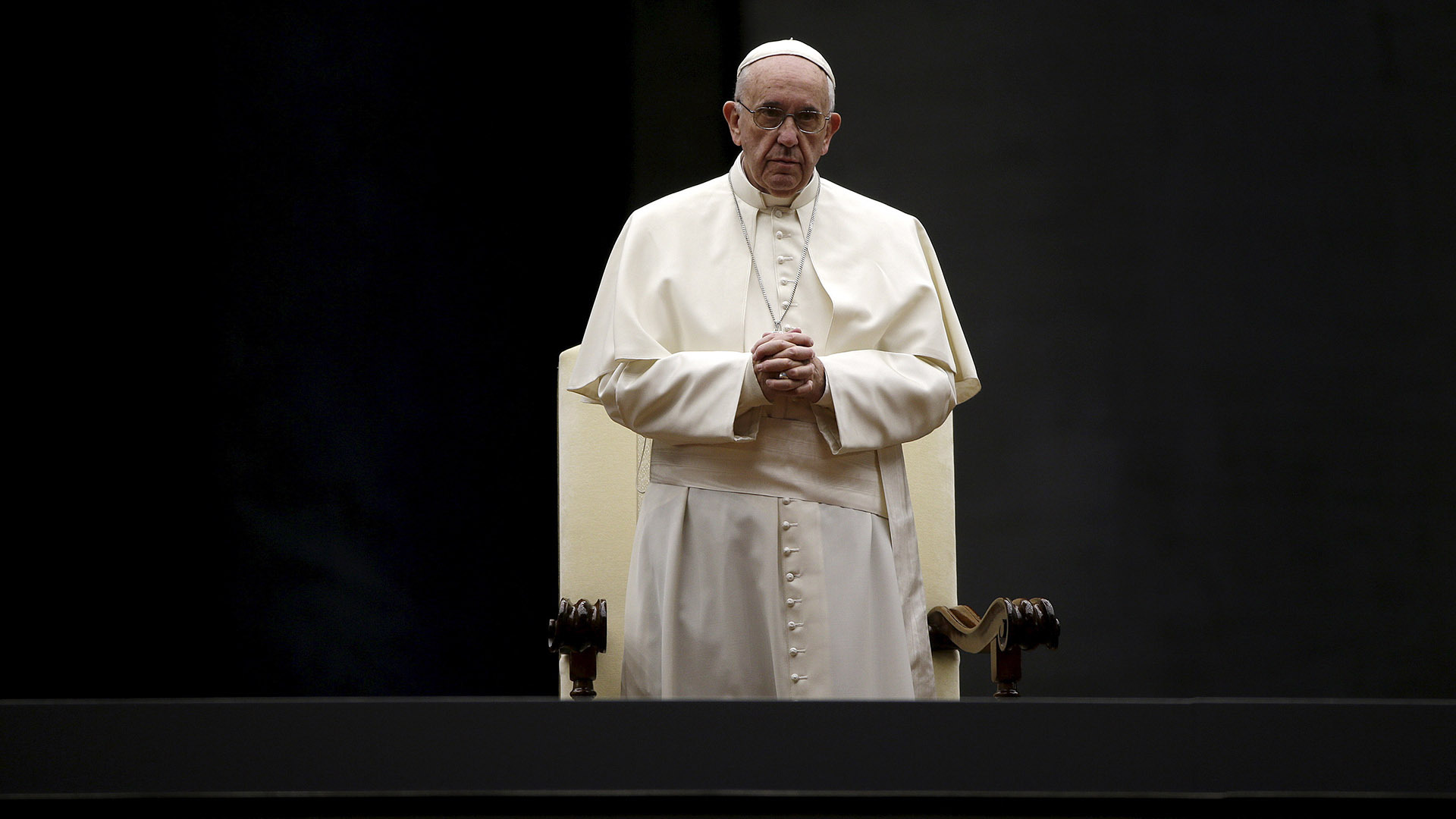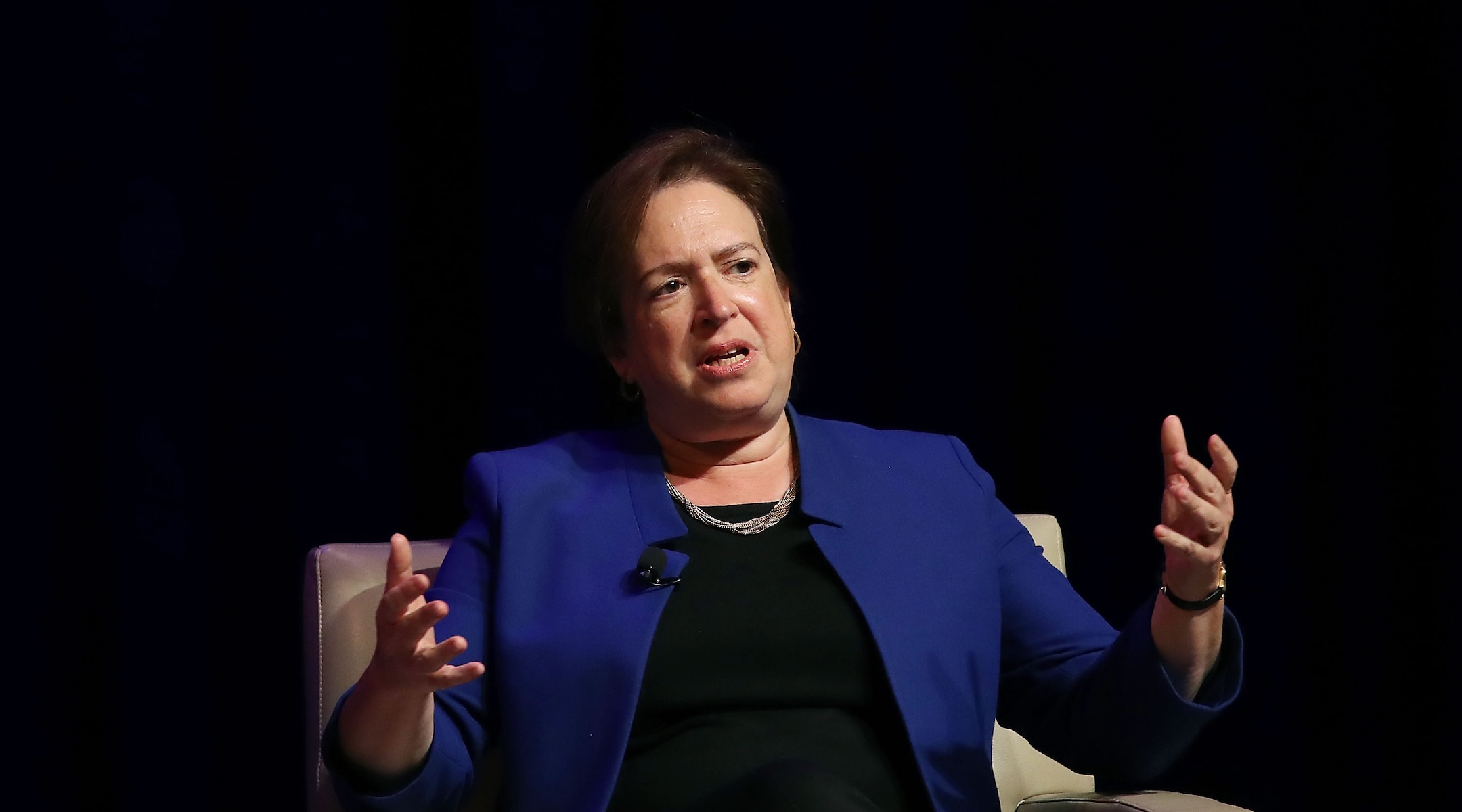Faith, Trade, and Trump: How Tariffs Became a Moral Crusade
Religion
2025-04-03 19:46:28Content

The global faith-based marketplace could face unexpected challenges as President Trump's tariff policies potentially disrupt the production and distribution of religious products, with the Bible market standing at the forefront of potential economic impact.
Recent trade tensions between the United States and China have raised concerns among religious publishing houses and importers of faith-related merchandise. Bibles, which are predominantly printed in China due to lower manufacturing costs, could see significant price increases if additional tariffs are implemented.
Industry experts warn that these trade policies might force publishers to either absorb increased production costs or pass them directly to consumers, potentially making religious texts and related products more expensive. Small religious publishers and faith-based organizations could be particularly vulnerable to these economic pressures.
The ripple effects could extend beyond Bibles, impacting a wide range of religious products, including prayer books, devotional materials, and religious artwork typically manufactured in overseas markets. This economic uncertainty underscores the complex interconnections between international trade policies and specialized markets.
As negotiations continue and trade dynamics evolve, religious publishers and consumers alike are closely monitoring how these tariffs might reshape the landscape of faith-based product manufacturing and distribution in the coming months.
Trade Tensions Threaten Religious Publishing: A Deep Dive into Economic Ripple Effects
In an era of escalating global economic complexities, the intersection of international trade policies and religious publishing has emerged as a critical focal point of potential disruption. The ongoing trade tensions and tariff implementations are casting long shadows across multiple industries, with faith-based publishing and related markets facing unprecedented challenges that could fundamentally reshape their economic landscape.Navigating Uncertain Economic Currents in Religious Publishing
The Geopolitical Landscape of Trade and Religious Materials
The intricate web of international trade policies has long been a complex terrain for publishers, but recent developments suggest an increasingly volatile environment for religious text production and distribution. Tariffs, traditionally viewed as economic instruments, are now revealing profound implications for sectors previously considered insulated from such geopolitical machinations. Manufacturers and distributors of religious texts are confronting unprecedented economic pressures. The supply chains that have traditionally supported the production of Bibles, religious literature, and faith-based educational materials are experiencing significant strain, with potential consequences that extend far beyond mere economic metrics.Economic Implications for Bible Manufacturing
The Bible publishing industry represents a microcosm of broader economic challenges facing specialized publishing sectors. With manufacturing often dependent on international supply chains, tariffs introduce substantial cost uncertainties that could fundamentally alter production strategies. Printing processes for religious texts involve intricate global networks, with paper sourcing, printing technologies, and distribution channels spanning multiple continents. The imposition of tariffs creates a domino effect, potentially increasing production costs, limiting market accessibility, and forcing publishers to reevaluate their entire operational framework.Supply Chain Disruptions and Market Adaptations
Religious publishing houses are now compelled to develop innovative strategies to mitigate economic pressures. Some are exploring domestic manufacturing alternatives, while others are investigating more complex international sourcing mechanisms that can circumvent traditional tariff structures. The economic landscape is forcing publishers to become increasingly agile, reimagining traditional production models and exploring digital transformation strategies. Electronic and digital Bible formats are emerging as potential alternatives, offering more flexible distribution channels less susceptible to traditional trade barriers.Cultural and Spiritual Dimensions of Economic Policy
Beyond pure economic considerations, these trade tensions touch upon deeper cultural and spiritual dimensions. Religious texts are not merely commercial products but carriers of profound cultural and spiritual significance. The potential disruption of their production and distribution carries implications that transcend mere economic calculations. Publishers and religious organizations are increasingly advocating for policies that recognize the unique role of religious materials in global cultural exchange. They argue that such texts should be viewed through a lens that acknowledges their spiritual and educational value, rather than being treated as standard commercial commodities.Technological Innovation and Market Resilience
The current economic challenges are simultaneously catalyzing remarkable technological innovations within religious publishing. Digital platforms, print-on-demand technologies, and sophisticated distribution networks are emerging as powerful tools for navigating complex trade environments. Publishers are investing heavily in technological infrastructure that allows for more flexible, responsive production models. These innovations not only help mitigate economic pressures but also open new avenues for reaching global audiences more effectively and efficiently.RELATED NEWS
Religion

Breaking: Utah's Religious Landscape Defies Expectations, Pew Study Reveals
2025-02-28 21:03:00
Religion

Vatican Crossroads: Pope Francis' Legacy and the Church's Uncertain Future
2025-04-21 23:31:12
Religion

Breaking: Pope Francis - A Transformative Pontiff Who Reshaped Modern Catholicism
2025-04-21 08:26:13





